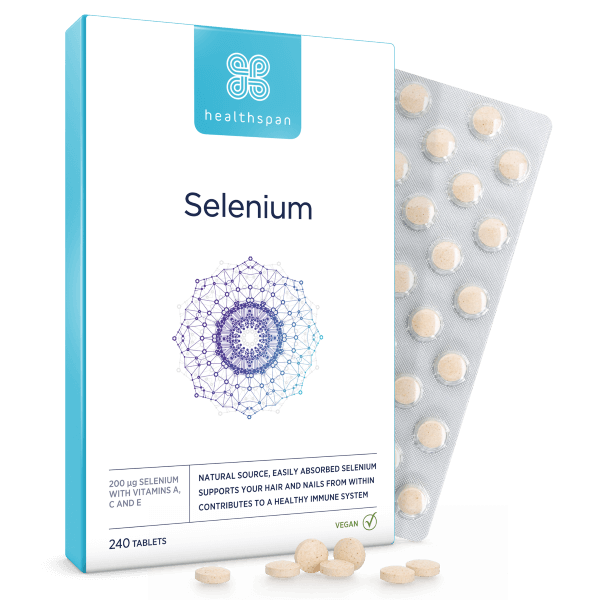A good source of healthy fats, protein, vitamins and minerals, nuts are nature's proof that good things really do come in small packages.
🕒 2 min read
Rich in healthy unsaturated fatty acids, vitamin E, folic acid, fibre and minerals, plus polyphenols and phytosterols (naturally occurring compounds that help balance cholesterol), nuts have been linked with everything from a lower risk of heart disease and type 2 diabetes in women to reducing blood pressure and helping to quell inflammation.
Here's our pick of the bunch.
Walnuts
A rich source of the polyunsaturated fats known as linoleic and alpha-linolenic acids, studies show that walnuts can help lower LDL (harmful) cholesterol and triglyceride levels, reducing the risk of cardiovascular disease, stroke, and heart attack.
They are also a good source of B vitamins – especially B6, folic acid, iron, zinc, and potassium, as well as vitamin C.
Use them in savoury dishes such as pilaff, stuffing, nut roast and salad, or sweet dishes like cakes and puddings, but always opt for unsalted options.
Almonds
Almonds are high in monounsaturated fats and vitamin E, which can help protect against heart disease. They're also an excellent source of calcium – with 25g providing as much calcium as a quarter of a cup of milk – plus protein, potassium, magnesium and phosphorus.
And, despite being relatively high in fat, research by the British Journal of Nutrition has revealed that consuming 55g nuts per day as part of a healthy diet has limited risk of weight gain, while a 2013 study concluded that they help to reduce hunger when consumed as a snack.
Peanuts
Whether you know them as peanuts, groundnuts or monkey nuts, peanuts are one of the most popular nuts.
Dry roasted, salted, shelled or unshelled, they feature on more party menus than any other nut, but avoid salted options, which may impact blood pressure, where possible.
High in fibre and providing 7g of protein per ounce (about 30g), peanuts are also a good source of vitamin B3, needed for healthy nerves.
Pistachios
Originating from the Middle East, pistachios are traditionally roasted and salted, and eaten between meals or with drinks.
An important ingredient in many Middle Eastern dishes as well as Halva and true Turkish delight, they were also originally used in ice cream making. A good source of minerals including calcium, iron and zinc, pistachios are lower in fat than other dry roasted options, but higher in fibre.
Pistachios are also a rich source of lutein and zeaxanthin, which studies show may help protect against conditions such as age-related macular degeneration.
Brazil nuts
Though commonly referred to as nuts, Brazil nuts are technically seeds.
Not only are they are an excellent source of magnesium, they are the number one food source of selenium in the world. In fact, consuming just five Brazil nuts fulfils your daily selenium requirement. They can be eaten whole or included in sweet and savoury dishes.
If you're not a fan of almonds, hazelnuts are the second-highest nut source of vitamin E, providing 4.3mg per serving.

Selenium
Supports thyroid, immunity, hair, skin and nails
- 200mcg natural selenium (363% NRV) per tablet
- Added vitamins A, C and E
- Health support for just over 6p a day







